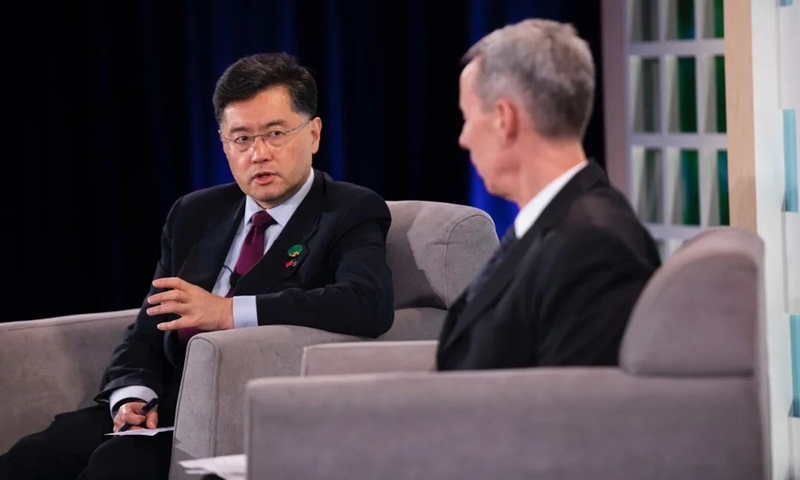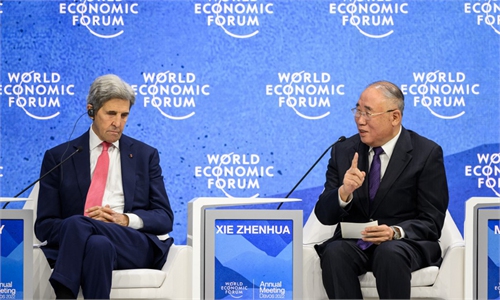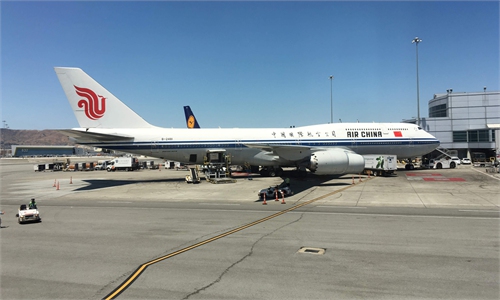US claimed competition in its China strategy not 'fair, healthy,' but a 'malicious confrontation:' ambassador

Photo: Chinese Embassy in the United States
The claimed competition by the US in defining its strategy toward China is not fair and healthy, but a "malicious confrontation" that either forces others to accept its self-made rules or even contain and curb the other "by hook or by crook," Chinese Ambassador to the US Qin Gang said at a forum, shortly after US Secretary of State Antony Blinken outlined a threefold strategy of "invest, align, compete" to tackle the so-called China challenge in the next decade.
Chinese observers said that Qin's response has laid bare the hegemony mindset deeply rooted in the US politics, based upon which Biden's administration overrides Washington over existing international rules and employs an aligned-approach to set up "US-centric small circles" to curb the development of the world's second-largest economy, as it perceives China's rise as a threat to US global supremacy.
Competition should be based on the basic principle of international relations and WTO rules that make each other better, rather than "a win-or-lose zero-sum game," Qin said, stressing that the competition claimed by the US side is neither fair nor healthy, but malicious confrontation that leads to "dangerous consequences."
He added that using competition to define bilateral relations would only escalate tensions and trigger confrontation. The fundamentals of bilateral relations should be cooperation and win-win. Even when there is competition, it should not be the focusof China-US relations, Qin said.
Qin made the comment at a global economic summit in Indiana on Thursday (US time), during which he also shared views on China's economic situation, cooperation with Indiana, and COVID-19 policy, according to a post on the WeChat account of the Chinese Embassy in the US.
He Weiwen, an executive council member of the China Society for World Trade Organization Studies, told the Global Times on Friday that the substance of US' China strategy remains "checking the growth of the world's second-largest economy with all means, including abusing its power and making it ride over multilateral organizations," — regardless of minor changes in rhetoric.
Blinken claimed Beijing drives to change the existing rule-based world order which poses "long-term challenge," but Chinese observers pointed out that such accusation is "totally fabricated," showing that the pre-condition of US' China strategy as well as the strategy itself "does not stand a ground."
"China always abides by international rules. If the US also behaves according to the global rules, there's no major contradiction between the world's two largest economies," He said, noting that the key problem is that the pre-condition — the "rule-based world order" by the US rhetoric is not the true world order based on UN Charter and the multilateral rules with WTO at the center, but only a small circle order led by the US.
As such, Blinken's speech further exposed US' hegemony mentality and arrogance over existing rules, He said.
While Blinken stressed that Biden's administration did not seek a "cold war"with China, from the economic fronts, Washington has attempted to lure countries in Asia and Europe, aiming to exclude China from global supply chain. During his recent visit to Japan, Biden rolled out the Indo-Pacific Economic Framework (IPEF), the economic pillar of US' Indo-Pacific strategy and an important tool for the US to conduct geoeconomic competition against China.
Other typical examples of US-led small circles include G7, AUKUS, QUAD and NATO.
"The US in the near future will mobilize more resources to target China, but will countries buy into it? The response from ASEAN may offer a clue,"He said.
During the forum, Qin also said China and the US maintain communication at all levels in trade and economic issues, and the US' tariffs on Chinese imports hurt American businesses and consumers, further driving up inflation, in response to a question on the prospect of China-US trade and economic relations.
The US government is evaluating whether to extend the first batch of tariffs imposed on Chinese products, which is due on July 5, which "everybody here" is looking for good news, Qin said. But China "will fight to the end" if US extends the tariffs, he stressed.
According to him, more flights between China and the US will open soon, and China will help more US students to get back to China in the next few months. China will also offer conveniences to help US businesspeople to fly to China based on an upgraded version of a fast-track channel.
Though the fallout of the epidemic poses uncertainty, the impact is temporary and the long-term sound fundamentals of the Chinese economy have not changed, Qin said, while encouraging more Indiana enterprises to seize opportunities on the future development of key sectors in China, such as agricultural, medicine, auto and engine, which the US state also has an edge.
Global Times


